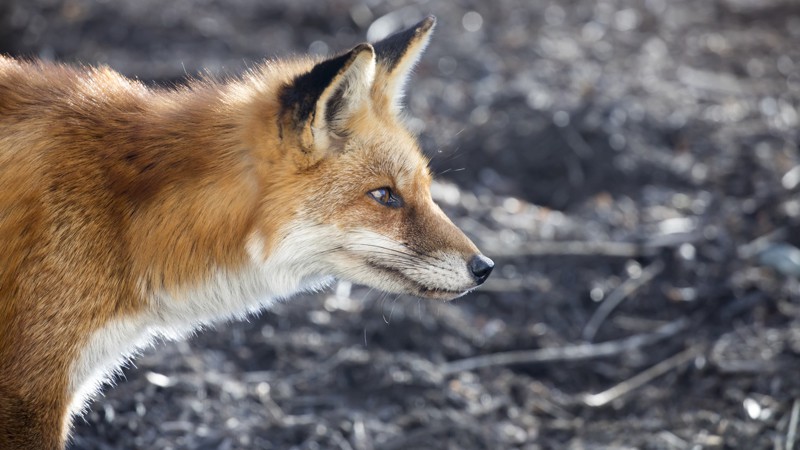Coyotes and Foxes and Raccoons, Oh My!
When ferocious wildlife scampers nonchalantly through your yard

Sure, it’s exciting to see birds flitting around your property, the occasional chipmunk scampering under your shrubs or a deer gliding into view outside your window.
But when other wildlife comes calling – such as raccoons, foxes, coyotes and bobcats – you may reconsider the need to go outside ever again. According to the Virginia Department of Game and Inland Fisheries (VDGIF), these visitors are becoming more common in urban areas – as people spread out, wild mammals continue to roam through their original habitats.
But don’t be alarmed by the sight of carnivorous wildlife casually strolling through your neighborhood. “These animals are not predatory toward humans and rarely pose a threat to pets,” says the VDGIF. Furthermore, even spotting a nocturnal animal by day does not necessarily mean rabies; particularly during the spring and summer months, these mammals may seek food for their pups by day.
But the best way to avoid conflict is to prevent them from being attracted to your property at all. Their number one motivator? Food, of course.
Often these mammals have a heightened sense of smell, finding interest in unsecured trash cans, pet food left outside and fallen fruit from fruit trees. Even something simple like excess birdseed on the ground can attract small rodents, which in turn may lure predators like foxes and coyotes.
Regarding threats from coyotes, the VDGIF advises: keep small pets inside and on a leash when outside, and install coyote proof fencing to protect unsupervised pets.
Note that urban carnivores aren’t all bad – they help prevent the overpopulation of rats, deer and Canada geese and may reduce the prevalence of feral cats, which in turn leads to greater success of nesting songbirds.
But do contact the authorities if an animal exhibits signs of rabies such as stumbling, foaming at the mouth or aggression.
If you see unwanted wildlife in your neighborhood and want a little moral support, call the Virginia Wildlife Conflict Helpline at 855-571-9003.


